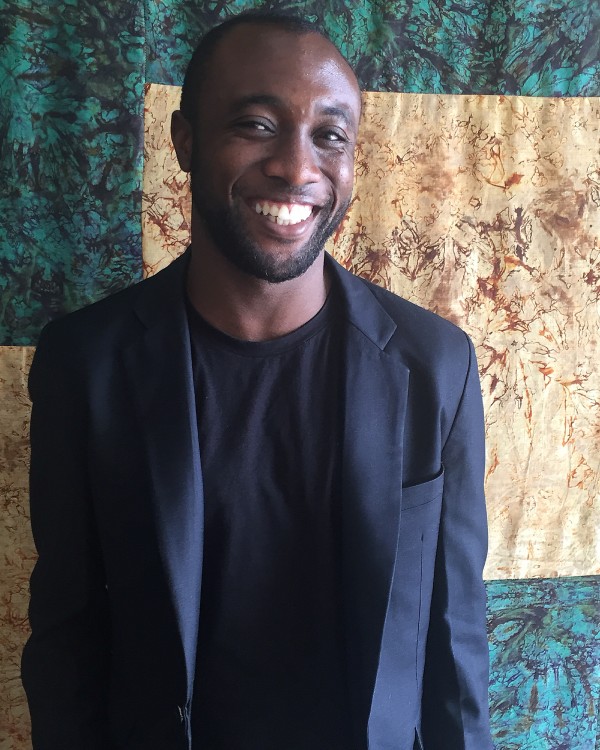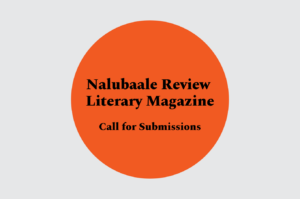
The Nigerian novelist Emmanuel Iduma, fresh from being profiled by Africa Is a Country following the publication of the first print issue of Saraba magazine which he edits, has been awarded an Andy Warhol Foundation Arts Writers Grant. The Andy Warhol Foundation Arts Writers Grant “supports writers whose work addresses contemporary visual art” with funds “ranging from $15,000 to $50,000, directly to individual authors for articles, blogs, books, new and alternative media, and short-form writing projects.” Their focus covers “a broad spectrum of writing…from general-audience criticism to academic scholarship.”
Iduma’s grant will be used to maintain “a year-long blog featuring intimate portraits of artists based in Nigeria and/or the United States” called A Sum of Encounters. “Each portrait will be developed following studio visits and lengthy conversations, culminating in short narrative essays that elucidate the triangular relationship between artist, artwork, and history.”
Iduma is the author of The Sound of Things to Come—first published as Farad (2012) in Nigeria—and co-editor of Gambit: Newer African Writing. His essays on art and photography appear in Guernica, ARTNews, Aperture, the Brooklyn Rail, and the British Journal of Photography. A faculty member of the MFA Art Writing Program at the School of Visual Arts, New York, he co-curated the Nigerian Pavilion at the 2017 Venice Biennale. His second book, A Stranger’s Pose (Cassava Republic, 2018), is a travelogue. This year, he guest-edited the first issue of the interview magazine Africa in Dialogue.
In mid-November, a profile of Iduma in Africa Is a Country, titled “The New, African Magazine—for Us, by Us,” by The New Yorker editorial staff member Anakwa Dwamena, focuses on the vision of Saraba, which he co-founded in 2009 with Dami Ajayi, author of the poetry collection A Woman’s Body Is a Country.
Here is an excerpt from the profile.
*
Iduma is 28 years old, unassuming and seems to meditate on the words he will pick, before he speaks.. His Nigerian accent remains undiluted despite his many travels; and here his blue long sleeves and jeans are a much better defense against the cafe’s blasting AC than my t-shirt and shorts. Iduma is also a very busy man, who, in his words, is “always trafficking through genres.” In addition to his duties as co-founder and editor of Saraba magazine, he teaches in the MFA Art Writing Program at SVA, writes for numerous publications (he has a Travelogue, “A Stranger’s Pose,” coming out next year) and worked as associate curator of Nigeria’s first pavilion at the Venice Biennale earlier this year. Being chosen as a one of the curators led him to think about structures of power and the questions about who gets to represents the country, and “what language could be used to think about this exhibition,” Nigeria’s art history and how the process of art-making in a country’s history parallel the evolution of a country.
Iduma has always wanted to be a writer. His earliest memory of writing was at the age of 6, when he tore a few pages from an exercise book, and wrote the story of the biblical character Philip who disappears after baptizing the Ethiopian in Acts. His parents, a preacher and school teacher, always knew of his interest in writing and have supported him. It would be at Obafemi Awolowo University where Iduma spent 5 years studying law that his interest in writing would crystallize into a real activity, leading him to abandon a career in law.
In the second semester of his first year, Iduma got involved with editorial work for the Christian Law Students Fellowship’s board, and by his third year, “still heavily involved in law of course,” he had become editor of the Jury Press Board writings editorials, poems and short stories as well as his column Griots every week. But by his fourth year, he was thinking about what is now Saraba.
The impulse and inspiration for a magazine came earlier, through a chance encounter with Ayobami Adebayo, (author of “Stay with Me,”) a Livingspring Christian Musical Festival event at the University. She was the first person Iduma recalls meeting who “was a writer” and not simply one of the people who liked to write occasionally. They started talking about their writing, exchanging work for critique and eventually decided to start a colloquium of new writing. Around the time the idea to start a magazine took hold, there wasn’t a great habitat of spaces for literary writing locally, Iduma recalls. In print, there was Farafina, (“Oh my God if you get published in Farafina you are a good writer”) and the short stories in the daily newspapers and Sunday newspapers. They knew of an audience of people interested in reading, and writers who would want to send in new writing and so they asked their friends to contribute. “The whole idea was to bring writers like myself together for three day workshops, workshop each other’s work,” he says.
They held the first one in a chapel space on campus, and by the third had graduated to a room at the Institute of Cultural Studies. Participants would send in short stories or poems to be printed, bound and distributed during the three workshop days. Eventually some English professors joined to help. After the workshops ended, several of the participants became friends often hanging out around Megaphone, the most popular notice board on campus, which was in the English department. Conversations with other literature lovers started shifting from books they had just finished reading, to a desire to publish. “That was the beginning of Saraba,” he says.
Read the full profile HERE.
Congratulations to Emmanuel Iduma.









LillieSmall February 12, 2018 15:21
I have checked your blog and i have found some duplicate content, that's why you don't rank high in google, but there is a tool that can help you to create 100% unique content, search for: Boorfe's tips unlimited content